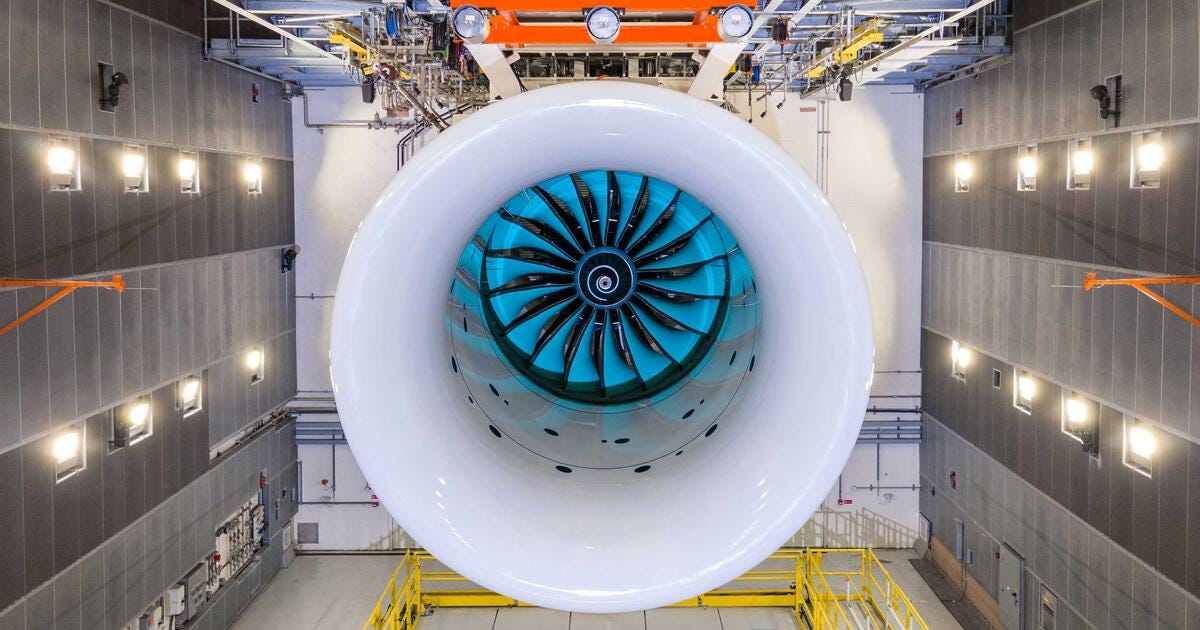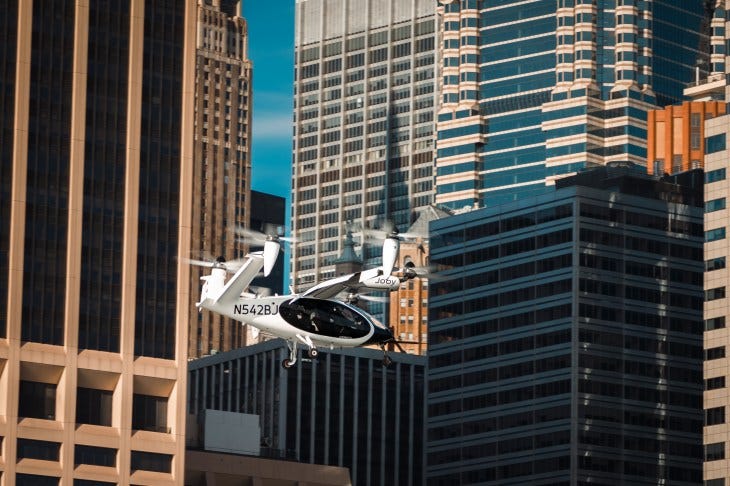#Sustainability20: Rolls-Royce Completes 100 Percent SAF Testing Across In-production Engine Lines & More
Weekly Roundup - 17/11/23
Each Friday, we publish a round-up of the 20 most important stories on sustainable aviation. You can see previous editions of #Sustainability20 here.
Industry Updates
The Dutch government has abandoned plans to reduce Schiphol airport's flights, facing opposition from the U.S. and EU scrutiny, reversing a move initially supported by environmentalists but contested by major airlines.
Changi Airport Group launched Changi Carbon Offsets, enabling passengers to offset their flight's carbon emissions regardless of airline, using a carbon calculator and paying via credit card.
Southwest Airlines has updated its sustainability strategy with a three-pillar approach focusing on carbon reduction, circulatory efforts, and collaboration. This includes using sustainable aviation fuel, electrifying ground support, and joining forces with like-minded organisations.
Munich Airport advanced its net-zero target from 2050 to 2035, planning to reduce CO₂ emissions significantly. Focus areas include energy, buildings, vehicles, and infrastructure, with emphasis on renewable energy and electric vehicles.
CLIMATE WATCH: How Much Can Trees Fight Climate Change? Massively, but Not Alone, Study Finds - The New York Times
Restoring natural forests globally could capture an additional 226 gigatons of carbon, about a third of emissions since the Industrial Era. This new study emphasises the need for a holistic approach, including protecting existing forests and addressing challenges like land use, climate impacts, and the necessity of reducing greenhouse gas emissions.
Infrastructure and operational efficiencies
Clark County Department of Aviation introduced its first zero-emissions, battery-electric buses at Harry Reid International Airport, funded partly by grants. Plans include replacing the entire Airport Rent-A-Car Center fleet with electric buses.
Sustainable Aviation Fuel (SAF)
Rolls-Royce completed testing 100% SAF across all its in-production engines, confirming it doesn't affect performance. This milestone, achieved through various tests, supports future investment in SAF production.
Boeing is partnering with the U.S. government to tackle challenges in expanding SAF use among Asia Pacific Economic Cooperation (APEC) members. Since 2022, Boeing has used 7.6 million gallons of SAF in its U.S. operations.
AirFrance-KLM has invested $4.7 million in DG Fuels' SAF production in Louisiana, securing an option to buy 25 million gallons annually from 2029, aiming for a 10% SAF incorporation by 2030.
A Boeing ecoDemonstrator flight-test using SAF showed significantly reduced soot particles and contrails. Researchers, including NASA and the German Aerospace Center, observed notable differences in emissions and contrails between SAF and conventional jet fuel, suggesting SAF's potential to lessen aviation's climate impact.
The Association of Asia-Pacific Airlines aims for 5% SAF usage by 2030, challenging fuel producers and seeking government incentives. This goal, set amidst concerns over SAF supply and cost, aligns with global efforts to reduce aviation's carbon footprint and increase SAF production.
Bombardier commits to using SAF for all operational flights via book-and-claim, enabling sustainability claims for SAF used elsewhere. This approach, part of a wider industry movement, is expected to reduce Bombardier's greenhouse gas emissions by 20-25% annually since January 2023, contributing to their 2025 emission reduction goal.
Boeing and Zero Petroleum have partnered to accelerate synthetic SAF development using the Fischer-Tropsch power-to-liquid process. This SAF, suitable as a 100% drop-in fuel, is ideal for regions like the Middle East with limited agricultural feedstocks. Made from air-captured carbon and renewable energy, it avoids rubber seal damage.
Macquarie Asset Management is investing up to €175M in SkyNRG to boost Sustainable Aviation Fuels production. This marks MAM's first SAF investment, supporting SkyNRG's aim to become a leading SAF producer. Funds will develop facilities in Europe and the U.S. by 2030, complementing existing partnerships with major airlines and Boeing.
New technology: Electric and Hydrogen
Joby Aviation and Volocopter demonstrated their electric aircraft in New York City, coinciding with the city's announcement to electrify two Manhattan heliports. Joby plans to introduce its service first in New York and Los Angeles, significantly reducing transit times to airports, aligning with cities' climate goals to reduce carbon emissions.
Wisk Aero launched eVTOL test flights at Long Beach Airport, marking a significant step in advanced air mobility. The company, backed by Boeing, showcased autonomous flight capabilities in a real-world airport environment. This culminated in a public demonstration at Long Beach's Festival of Flight, with local officials present.
Ampaire Inc. achieved a milestone with the first hybrid electric flight into Palo Alto Airport, led by CEO Kevin Noertker. The flight demonstrates the viability and efficiency of Ampaire's technology, highlighting the role of regional airports in sustainable transportation.
LTA Research, supported by Sergey Brin, unveiled its electric airship prototype, Pathfinder 1, set to become the largest aircraft since the 1930s. Spanning 400 feet, it's equipped with drone technology, 12 electric motors, and lidar sensing. The airship, with an airworthiness certificate from the FAA, will undergo rigorous testing. It's designed for cargo transport and aims to reduce the carbon footprint in aviation, complementing humanitarian aid.
BETA Technologies and Archer Aviation are collaborating to develop an interoperable charging network for electric aircraft, including eVTOLs and eCTOLs. BETA, known for its charging technology and electric aircraft, has 14 stations in the US, with more under development. Archer plans to implement BETA’s technology to support its eVTOL fleet, aiming to create a universal network for zero-emissions vehicles.
Tampa International Airport hosted the first U.S. test flight of the Volocopter electric air taxi, signalling a shift towards urban air mobility in the Tampa Bay area. The eVTOL aircraft offers efficient, direct transport from the airport to local destinations, aligning with goals to ease congestion and reduce carbon emissions. With officials targeting a commercial launch by 2024-2025, this service promises affordable and eco-friendly travel options, potentially revolutionising short to medium-distance travel.
The Australian Renewable Energy Agency (ARENA) has awarded AU$5.43 million to AMSL Aero for the development of the hydrogen-powered eVTOL Vertiia. Designed as a flying ambulance and multipurpose aircraft, Vertiia aims to offer a low-cost, eco-friendly air transport option with a range of up to 1,000 km. The aircraft features a modular interior for various uses, including emergency services and cargo transport.







